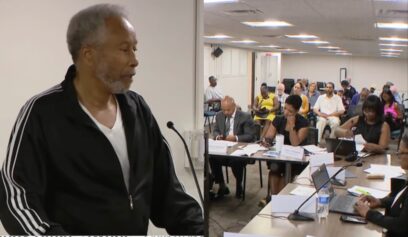Over the years, many African-Americans have advocated for reparations to descendants of slaves. In response, many whites have argued that reparations cannot be made for various reasons. The most prominent reasons are that it would be too difficult to determine who was harmed and identifying the descendants, and the cost for reparations would be too high. Both arguments made by opponents of reparations are pathetic.
Regarding the first argument, opponents wish to deny justice to those descendants because they think it is hard to know who should receive reparations. It is not hard. If circumstances were reversed, these white obstructionists would be able to provide evidence in a heartbeat. Nevertheless, the sad thing is that descendants of slaves get the message that the pain and suffering their ancestors endured do not matter. Opponents of reparations do not care. You hear the familiar refrains when it comes slavery: “Just get over it.” “Forget about the past, it was a long time ago.” “I had nothing to do with slavery, how am I responsible?”
Concerning the second argument, opponents of reparations are actually acknowledging the wrong done to the ancestors of the descendants of slaves. When opponents of reparations suggest that the cost or price of redressing grievances due to slavery are too high, they are implicitly stating that the U.S. government was complicit in human rights violations and that (white) slave owners engaged in and benefited tremendously, as did white descendants. Thus, the argument against reparations as too costly speaks to the level and severity of the harm done to slaves. Opponents are suggesting that slavery was so harmful and malicious that the price of reparations are too high to fathom and to pay out.
Another shameful feature of the discussion about reparations is how opponents address the issue. They try way too hard not to support justice and righting wrongs. They rationalize, trivialize, and condone the injustices of the past. They contrive ways to prolong meting out justice. It is understandable that white opponents do not care and would like to forget about the disgraceful and reprehensible behavior of their ancestors. Who would be proud of the fact that their ancestors enslaved people for profit, denied them all sorts of necessities, and treated slaves so inhumanely? We get it. White people do not care that they benefit from the legacy of slavery and they do not want to risk losing any of those benefits.
Whether the issue of reparations gets resolved or not, I would like whites to stop doing one thing going forward. I would like white people to stop muddying the waters by including some random, isolated incident of misfortune they suffered and equating it with slavery, racial discrimination, or racism.
Because of your skin color, you are not systematically targeted for unfair, unequal treatment. Because of your skin color, you are often the beneficiary of unfair, unequal treatment. While white people believe they do not bear any responsibility for slavery and the vestiges of past discrimination and racism, they benefit from the institutions and systems (political, economic, and social) put in place to reinforce the subjugation of Black people.
Dr. Maruice Mangum is an associate professor in the department of Political Science at Texas Southern University.


